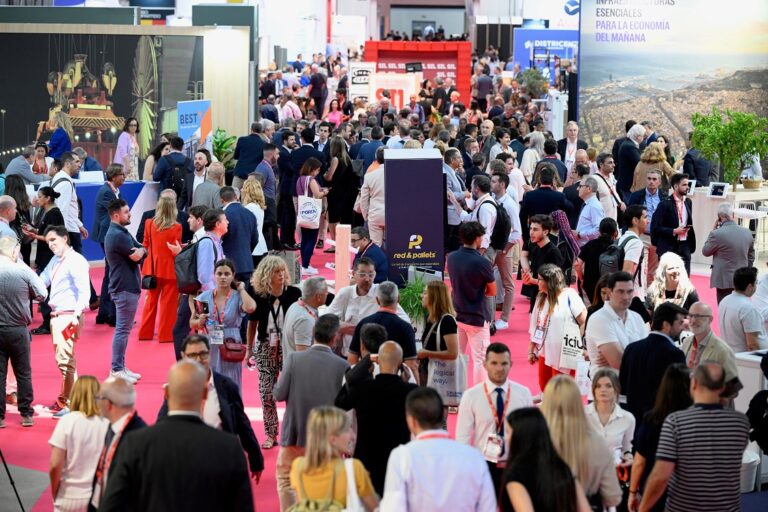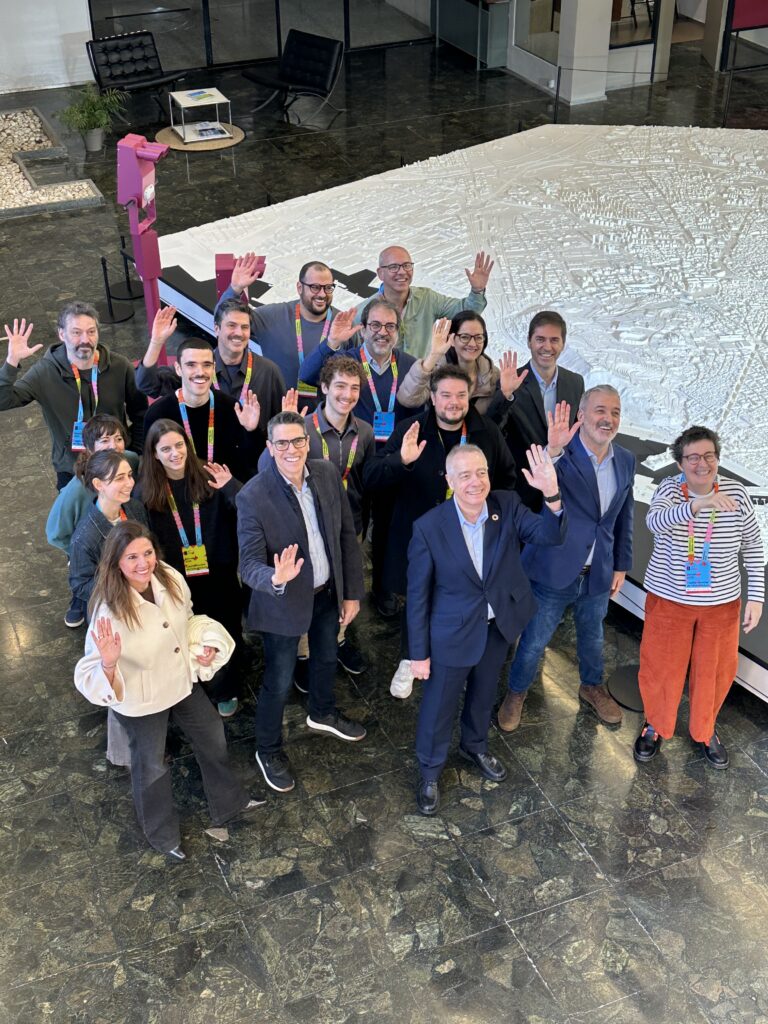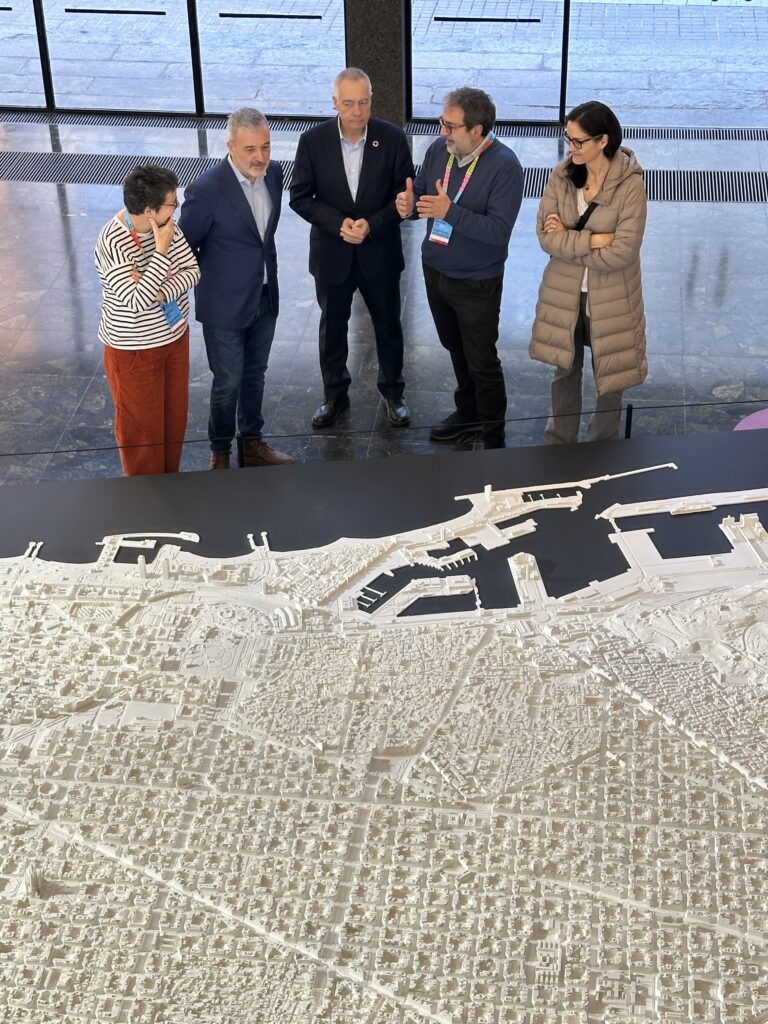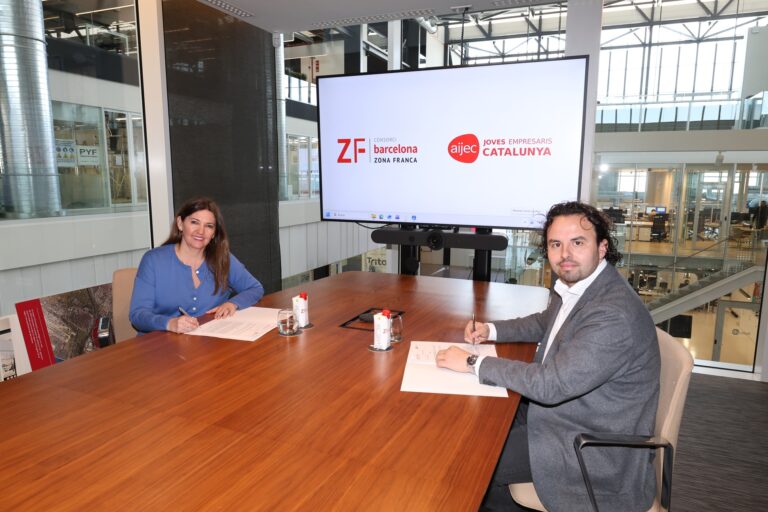SIL 2024 highlights logistics’ commitment to efficiency and sustainability

6 de June de 2024
- One of the news of SIL 2024 is the Digital Supply Chain Exhibition, a demonstration space where visitors can see how a true digital supply chain works in all its phases.
- Among the 176 innovations presented by the 650 participating companies are spider robots, last-mile delivery drones, smart lockers, new fuels and GPT freight, among other novelties.
- SIL International Knowledge is, once again, one of the strong attractions of the fair with 70 sessions, 320 top-level speakers and three simultaneous content spaces.
Barcelona, 6 June 2024.– Innovation is taking centre stage at the twenty-fourth edition of SIL 2024, the leading international trade fair in the field of logistics, transport, intralogistics and the Supply Chain, organised by the Consorci de la Zona Franca de Barcelona (CZFB), which will take place until tomorrow, 7 June, in Hall 8 of Fira de Barcelona’s Plaça Espanya venue. Technology companies and startups have invaded the trade fair space with disruptive solutions that apply Artificial Intelligence, Big Data, augmented reality, Blockchain, IoT and all kinds of new technologies, to optimize the supply chain and demonstrate that a more efficient and sustainable logistics 4.0 is possible.
The Digital Supply Chain Exhibition, in which companies based in DFactory Barcelona and the Logistics 4.0 Incubator – both initiatives promoted by the CZFB – participate, is one of the stands that this year capture a large part of the attention of visitors to the fair. All professionals who come to this space can see a demonstration of how a true digital supply chain works, in each of its phases: warehouse picking, supply transport, goods receipt, production and delivery.
In addition, the 650 companies participating in this edition of SIL will present 176 innovations this week in a world exclusive. In the aisles and stands you can see spider robots that speed up picking on the shelves of a warehouse as well as all kinds of automations applied to intralogistics, drones that optimise the last mile in large cities and also in rural areas, smart lockers suitable for temperature-controlled products, software that guarantees the traceability of goods throughout the entire supply chain, virtual simulations of logistics spaces, solutions to prevent collisions and all kinds of workplace accidents in logistics environments or to guarantee the safety of fleets, GPT freight, new clean fuels and even a green hydrogen market place.
The special delegate of the State in the CZFB, Pere Navarro, points out that “these innovations not only improve the efficiency and sustainability of operations, but also set new standards. These standards are strengthened by the network of connections within the sector, by the promotion of co-creation and the exchange of innovative ideas that drive logistics into the future”.
Another of the great attractions of the event is the SIL International Knowledge program, distributed in three simultaneous spaces in which nearly 70 content sessions are held and in which more than 320 top-level speakers participate, such as the heads of logistics and/or Supply Chain of companies such as Unilever, SEAT, Mango, Condis, Simon, Mercadona, Cepsa Química, Pasqual, Mahou San Miguel, Akzo Nobel, Frit Ravich, Zalando, Covestro and Capsa Food, among others. Logistics 4.0, sustainability and talent are the three pillars on which the content program is based, which addresses aspects such as: new technologies and fuels to decarbonise the maritime sector, Spain as a European hub for air travel, intermodality as a strategic ally in the decarbonisation of road transport, trends that are revolutionizing the logistics real estate sector, technological solutions applied to logistics or how to negotiate a tender, among others.
Logistics makes the difference in Retail and Mass Consumption
Today, the technical conference of the Logistics and Transport Business Organization (UNO) took place, one of the fixed events already in the SIL calendar, this year under the title: Logistics and transport as a lever for competitiveness in retail and mass consumption. The president of the employers’ association, Francisco Aranda, stressed during his speech that “to play a leading role in the economy, it is crucial that we face the challenge of evolving logistics towards an analytical, technological, and ecological model. This requires a joint effort from all stakeholders involved. Public-private collaboration, investment in key infrastructures, adoption of innovative technologies, and commitment to sustainability are essential elements to achieve this objective”.
For his part, the special delegate of the State in the CZFB, Pere Navarro, also participated in this session and stated that “the sector faces several significant challenges, such as advancing towards complete environmental sustainability, managing a globalized supply chain, and acquiring key talent. However, the growth of e-commerce and reverse logistics offer opportunities to develop intelligent infrastructure and foster collaboration among all stakeholders. In this context, it is advisable to invest in technology, promote collaboration, and enhance the development and retention of specialized talent”.
BWAW by SIL
One of the novelties of this edition is the BWAW by SIL, a programme of conferences to promote gender equality in a traditionally very masculine sector, which aims to continue advancing towards parity and give visibility to the role of women in logistics. During the four sessions spread over the three days of the fair, there will be a debate on women in the logistics industry 4.0, gender equality as a fundamental right, startups and scaleups in the logistics sector led by women, as well as female talent and training for women in logistics.
In the words of Blanca Sorigué: “As a result of the involvement of the Consorci de la Zona Franca de Barcelona for the Sustainable Development Goals of the United Nations 2030 Agenda, we have considered that the SIL should dedicate a space to SDG number 5, which refers to gender equality, in logistics. We believe that initiatives like this are more necessary than ever to make visible the role of female talent in a traditionally very male sector”. Sorigué recalled that “last year we already held a meeting with leading executives in the sector, but this year we wanted to go a step further by creating a specific program to talk about equal gender opportunities”.



